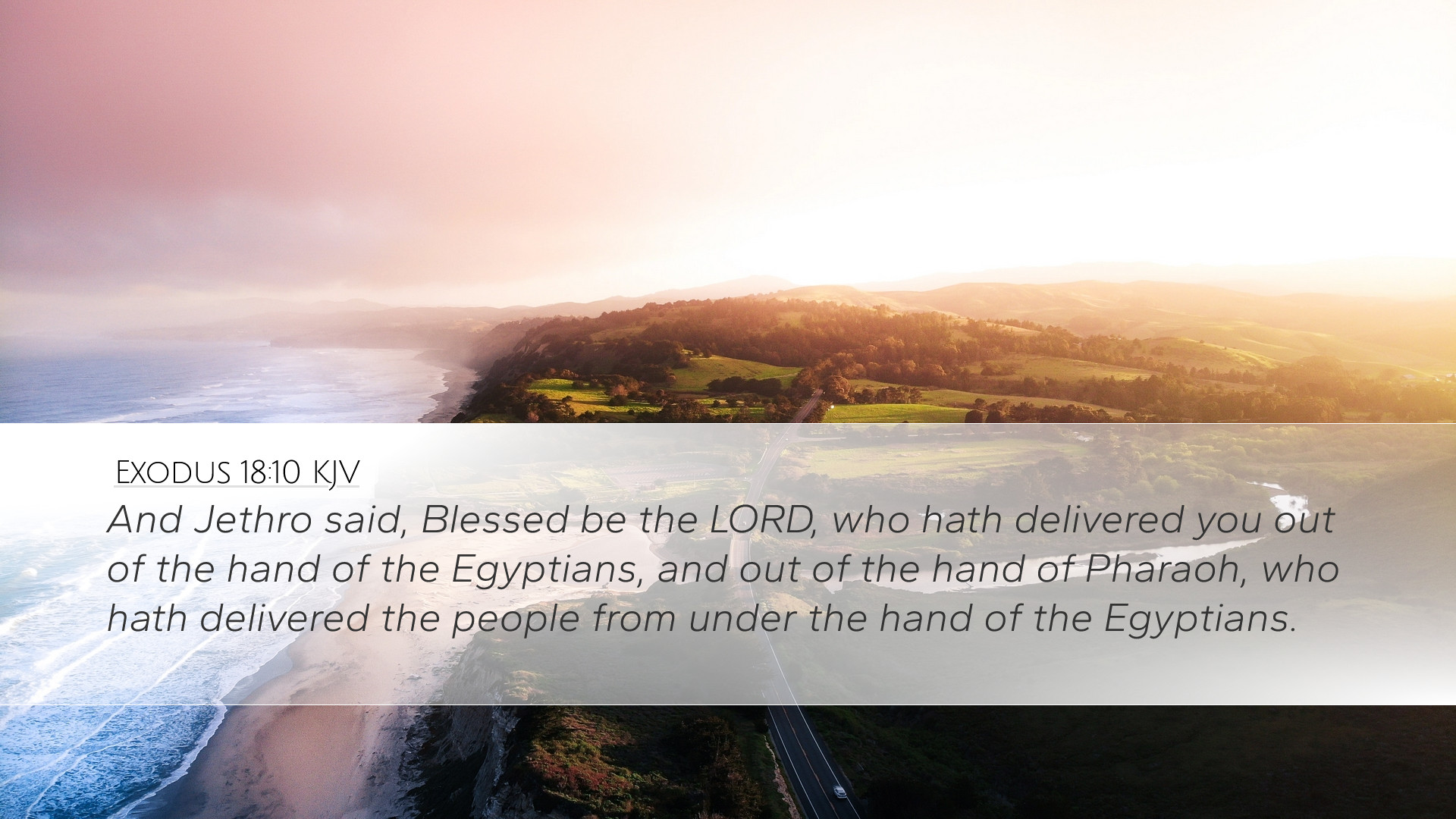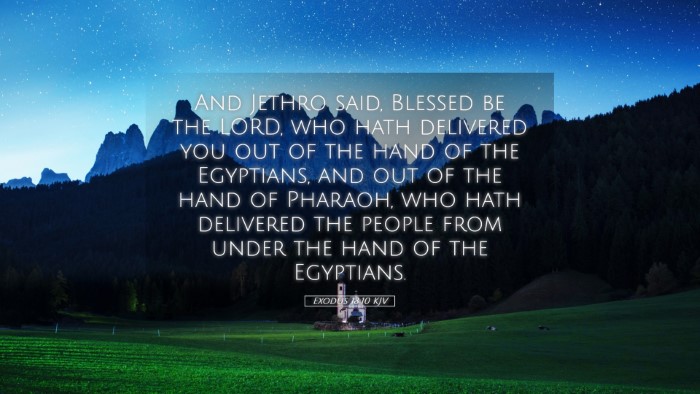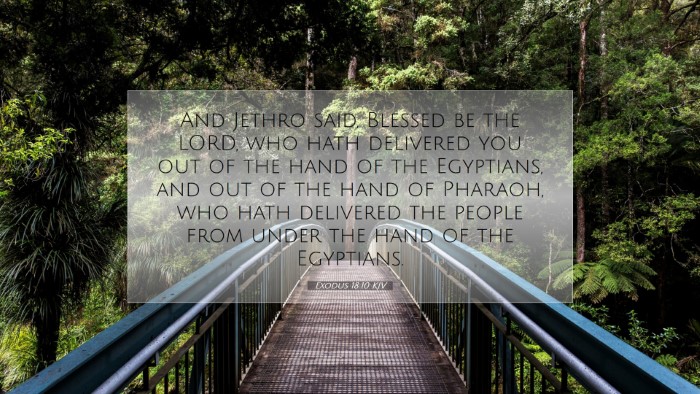Commentary on Exodus 18:10
This verse captures a critical moment in the history of Israel, as it reflects on the wisdom of Jethro, Moses' father-in-law, and highlights the importance of divine deliverance and guidance in the lives of God's chosen people.
Verse Context
In Exodus 18:10, Jethro proclaims, "Blessed be the Lord, who has delivered you out of the hand of the Egyptians and out of the hand of Pharaoh." This statement comes after Moses shares the account of the Israelites' exodus from Egypt and their journey through the wilderness. Jethro's affirmation acknowledges God's sovereignty and faithfulness.
Exegesis and Insights
1. Recognition of God's Deliverance
According to Matthew Henry, this verse emphasizes the significance of recognizing God’s hand in our lives. Jethro not only expresses his own blessing but also underscores the vital act of memory in Israel's spiritual life. The act of remembering and recounting God’s deliverance is essential for both corporate and individual faith.
2. The Nature of Blessings
Adam Clarke remarks that blessings, as mentioned by Jethro, are both an acknowledgment and a form of praise. Jethro’s declaration serves as an insistence that God's actions deserve recognition. This might inspire pastors and Bible scholars to understand how to articulate blessings within their congregations today.
3. Acknowledgment vs. Obligation
Albert Barnes highlights that while Jethro recognizes God's deliverance, it also serves as an invitation for the people of Israel to acknowledge their obligation to follow God's guidance henceforth. It poses an important question for the faithful: How do we respond to God’s acts of deliverance?
Theological Implications
Exodus 18:10 invites deeper theological reflection on themes of divine providence, human responsibility, and the act of worship. This recognition of God's powerful intervention requires a response of eternal gratitude from the faithful:
- Divine Providence: This verse affirms the belief that God intervenes in human affairs and provides for His people, a foundational concept in Reformed theology.
- Human Response: The acknowledgment of God's deeds calls for a reflective response from His people, inspiring them to worship and serve Him faithfully.
- Covenantal Context: Jethro’s blessing connects to the larger story of covenant, where Israel identifies itself as God’s chosen community.
Practical Applications
1. Celebrating God’s Works
Communities of faith are called to celebrate and articulate the works of God in their lives. Church leaders can create opportunities for testimonies about God’s actions and deliverance, fostering a culture of gratitude and recognition.
2. Guiding Others
As seen with Jethro giving wise counsel to Moses, it encourages leaders to seek and provide guidance rooted in biblical truths. This reflects an essential ministry of pastoral care.
3. Fostering of Worship
The blessing requires a response of worship. Pastors and church leaders can incorporate blessings in services—creating not just moments of praise but genuine acknowledgment of God’s works.
Conclusion
Exodus 18:10 serves as a powerful reminder of the need to recognize and celebrate God's deliverance. It prompts believers to respond with both thanksgiving and the intent to live out their faith in response to God's faithfulness.
This examination of Jethro's statement enriches understanding of the dynamics within the community of faith, illustrating the interconnectedness of divine action and human response in the narrative of God's covenant people.


